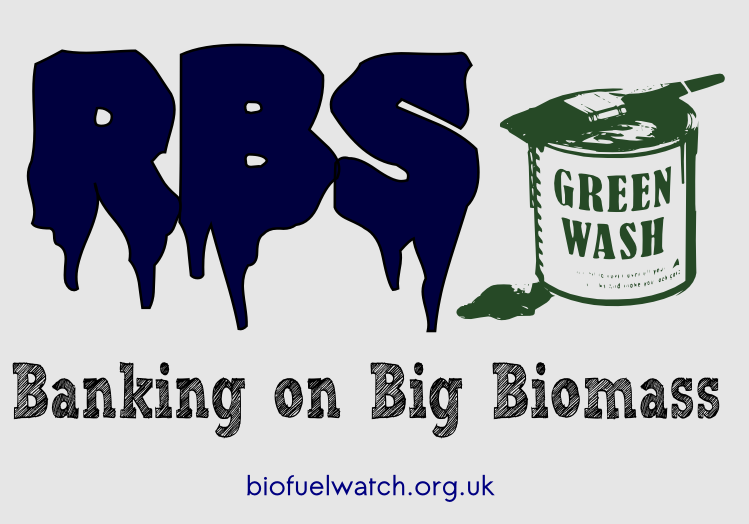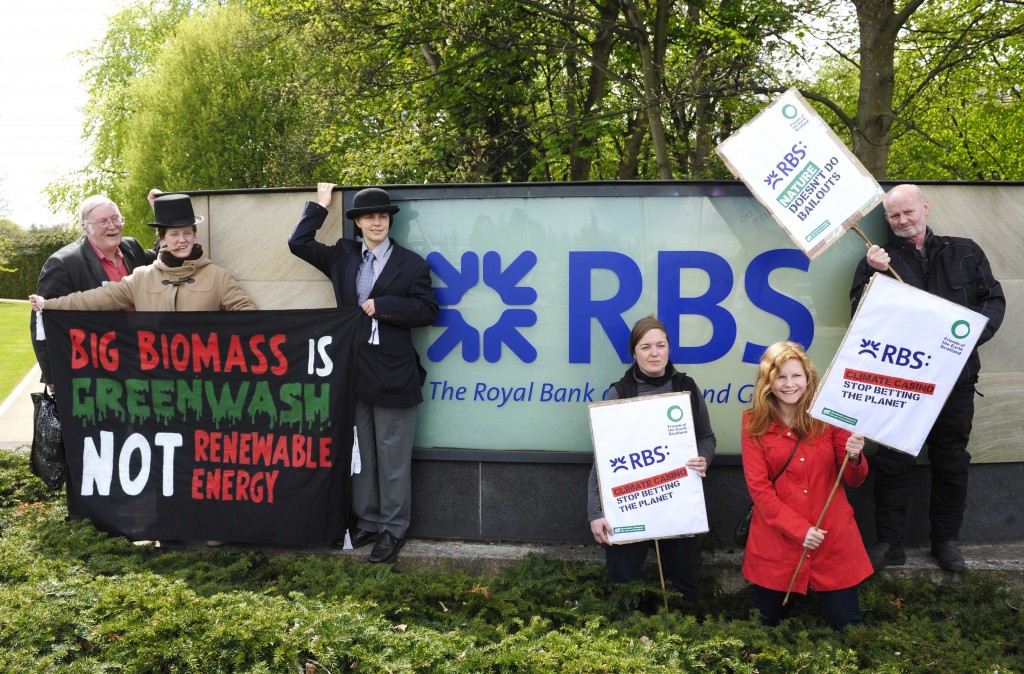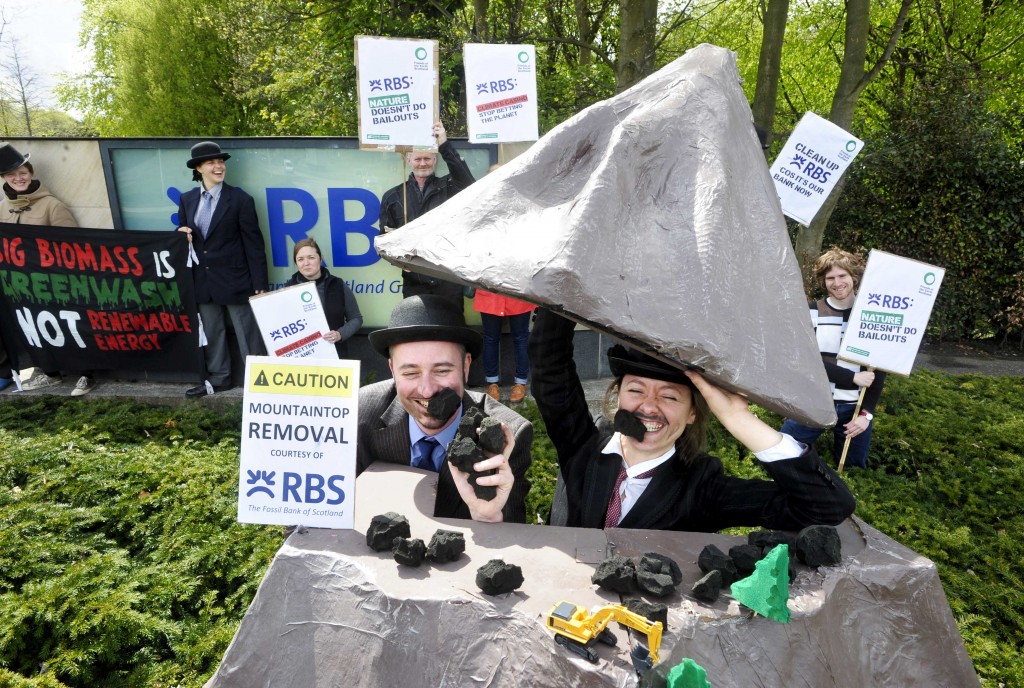On the 14th of May Biofuelwatch joined Friends of the Earth Scotland at the RBS headquarters in Edinburgh to hold the bank to account for its dirty investments into fossil fuels and big biomass.
 In reaction to negative publicity and increasing public pressure, RBS has been making ever greater investments into so-called renewable energy projects in recent years in an attempt to green its image. In 2010 RBS renewable energy deals were worth £307m but this increased to £9.08bn by 2011. While this might sound like a positive step for a bank better known as the “Oil Bank of Scotland”, the reality is that these investments are at best a green façade designed to distract attention away from its continued commitment to destructive fossil fuel projects.
In reaction to negative publicity and increasing public pressure, RBS has been making ever greater investments into so-called renewable energy projects in recent years in an attempt to green its image. In 2010 RBS renewable energy deals were worth £307m but this increased to £9.08bn by 2011. While this might sound like a positive step for a bank better known as the “Oil Bank of Scotland”, the reality is that these investments are at best a green façade designed to distract attention away from its continued commitment to destructive fossil fuel projects.
Perhaps even more worrying however, is the fact that a considerable number of the investments that RBS classifies as renewable, are in fact extremely environmentally and socially damaging energy generation projects such as big biomass and biofuels. Using these forms of bioenergy on a large scale has been shown to actually accelerate destruction of forest habitat, incentivise land grabbing in poor countries, push food prices up globally and, to add insult to injury, make climate change worse.
Despite big biomass being far from a sustainable alternative to fossil fuels, in 2011 13% of all of RBS energy project financing was directed towards biomass projects. Since this time, RBS has offered loans to companies developing energy production from biomass as part of its strategic financing of the renewable energy sector. 
In April 2012 Helius said that it was working with lenders including RBS and Lloyds Banking Group Plc to finance a £300 million power station in Avonmouth which would burn imported woodchips and pellets made from 1 million tonnes of wood. Then in November 2012, it was reported that Drax Plc had secured a £400 million ‘credit line’ loan from RBS, Lloyds Banking Group Plc and Barclays Plc to convert half of its power stations capacity to biomass. This move will result in Drax burning pellets made from almost 16 million tonnes of wood a year – the equivalent of 1.6 times the UK’s entire annual wood production.
RBS has also been an important investor in several biofuel refineries aswell, for example in Ensus’s wheat ethanol refinery in Teeside, which uses 1.1 million tonnes of wheat a year. This has been an important contributor to the UK becoming a net importer of wheat, thus helping to push up global prices of staple foods.
And RBS plans to expand these investments in the future. According to Andrew Buglass, head of energy at RBS, the bank is currently working on about five deals to support plants that will use biomass to generate electricity. The facilities, to be built from scratch, will each have a capacity of 50 to 150MW. Projects of this size may cost as much as £300 million.
 At the same time, RBS has not stopped funding some of the most extreme energy projects in the world, including the tar sands project in Canada and mountain top removal projects in Appalachia in the USA. Oil from tar sand production releases three times more greenhouse gas emissions than conventional oil, while the process known as Mountaintop Removal involves blasting the top off of mountains to access coal, destroying the mountains and communities around them in the process.
At the same time, RBS has not stopped funding some of the most extreme energy projects in the world, including the tar sands project in Canada and mountain top removal projects in Appalachia in the USA. Oil from tar sand production releases three times more greenhouse gas emissions than conventional oil, while the process known as Mountaintop Removal involves blasting the top off of mountains to access coal, destroying the mountains and communities around them in the process.
This is why on the 14th of May Biofuelwatch joined Friends of the Earth Scotland and other concerned organisations outside the RBS headquarters in Edinburgh during their AGM – to protest against RBS using our money (since RBS is a taxpayer owned bank) to invest in BOTH dirty fossil fuels AND in false renewable solutions such as biomass and biofuels.
RBS is not alone in investing in false renewable solutions, they join the Green Investment Bank (GIB) (who held their conference at RBS headquarters earlier in the week on the 9th of May) in lending significant funds to companies developing big biomass. Biofuelwatch have been running a campaign against the Green Investment Bank to stop them from doing this. You can read more about The Green Investment Bank here
